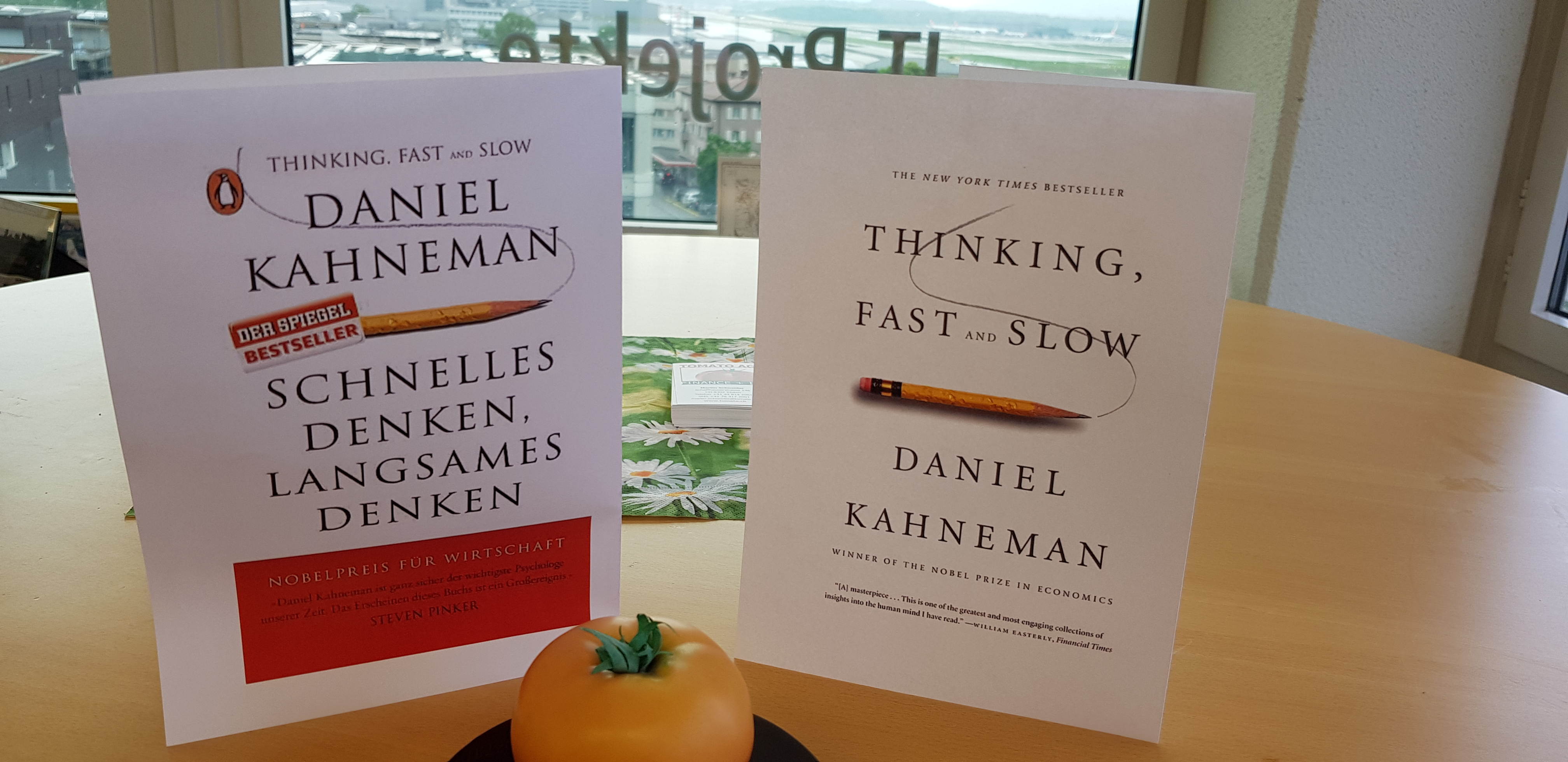TOMATO CATCH-UP - Newsletter Issue 219 – May 2019
Your monthly resource on working capital, process optimization and issues relating to the world of corporate treasurers, IT professionals and bankers!
This newsletter is bilingual, English or German depending to the source.
Introduction
We are pleased to be able to offer you news that we have collected from a variety of print and online sources. This month we focus on why Swift is so important in today's world and why money transfers always play an essential role. Also, data and cyber security are a key issue; and we present an article that deals with a possible next crisis and how it would pan out.
Enjoy reading and finding news that will help your company and/or you and your colleagues.
Remember that for any challenge related to your financial issues, ask Martin Schneider for a discussion that will clarify it. Contact Martin via email or call +41 44 814 2001.
- The Importance of Swift Score for Corporates
- Payment Fraud noch immer zunehmend Deutsch & English Sources
- Treasury-Verband VDT mit KYC-Leitfaden
- Do You Have the Best TMS for Your Needs?
- Schweizer Banken und das Auslagern von Dienstleistungen
- Strategieentwicklung mit zwei Ansätzen, Vertrauen schaffen im Umgang mit Daten (Deutsch and English)
- Swiss GAAP FER - Vision 2020
- SAP Migration auf S/4Hana: Altes loslassen
- What Happens if There’s Another Financial Crisis? An Economist explains
- Was kommt mit Google Pay
- Buch Tipp: Schnelles Denken, Langsames Denken Deutsch & English Sources
- Termine
- From the Desk of Tomato
1. The Importance of Swift Score for Corporates
Since 1975, the cooperative SWIFT in Brussels has been the backbone for all payments worldwide.
Swift provides a network that allows financial institutions worldwide to send and receive financial transaction information in a secure, standardized and reliable environment. Corporate’s participation in SWIFT allows for all imports and exports, dividends, loans etc. In short money transfer is a key human thing in the world besides “sex”, aren’t they?
Since 2009, corporations can participe as members of Swift in within “Swift Score” (Swift Corporate).
Without Swift Score a company uses the many e-bankings and contracts signed locally. This earlier e-banking work is time consuming to report and involves financial risks. That’s why it is advantageous for a company to participate in and maintain a bank gateway instead of many manual and insecure e-banking facilities.
In order to apply and register via a central payment portal for your partner banks worldwide, the participating companies must follow a specific application procedure that is common for banks. Bank employees are accustomed to strict compliance, regulation and oversight. Nevertheless applying for Swift Score is much easier than a Bank KYC process.
At Tomato, we are a neutral consultant with no interest in Score or other systems. Bank gateways are one of our core competencies. We suggest that it is better to have ONE backbone than many small and bank-dependent e-banking connections and local contracts under the supervision of local society only. The risk of external and sometimes internal fraud is high. So connect your ERP or central treasury software with a secure gateway to your partner bank. This makes it reliable, robust and secure.
It is important for companies to prove themselves as reliable partners for the world's most secure payment network. - Options? None or difficult.
Watch the 3 minute Swift explaining video from World Street Journal.
Can we help to show you the pros and cons? Please feel free to contact Martin Schneider at Tomato +41 44 814 2001. Our Slide page 4 on tomato.ch/publications may give you an easy oversight.
2. Payment Fraud noch immer zunehmend Deutsch & English Sources
Payment fraud seems to be the New Normal for today's organizations. Wir listen Ihnen diverse Berichte in Deutsch und Englisch:
- English: AFP and JP Morgan releases in March the 12 pages PDF report 2019 AFP Payments Fraud and Control Survey Report in March 2019
JP Morgan aus den USA sponsort den Bericht für AFP (American Finance Professionals), März 2019 in Englisch.
You will find this publication also in Global Treasurer.
- Deutsch: PwC Schweiz äussert sich zum neuen Sicherheitsdispoisitv bei Swift, dem internationalen Banken – Netzwerk, Feb. 2019 von Jens Probst, Partner and Leader Business Process Assurance
- Deutsch: CIO Deutschland berichtet über die Bitkom-Studie Okt. 2018 (Bitkom e.V. in Berlin) woraus hervorgeht, dass in den vergangenen 2 Jahren enorme Schäden durch Sabotage, Datendiebstahl oder Spionage entstanden sind.
Einige Prozentzahlen aus der Bitkom Studie:
63 Prozent der Cyber-Vorfälle sind ehemaligen oder unzufriedenen Mitarbeitern zuzuschreiben
48 Prozent der Fälle gehen zu Lasten des näheren Umfelds (Kunden, Lieferanten, externer Dienstleister oder auch Konkurrenten)
in 29 Prozent der Vorfälle standen Privatpersonen oder Hobbyhacker hinter den Angriffen
17 Prozent der Unternehmen berichten von organisierter Kriminalität
11 Prozent gehen zu Lasten ausländischer Nachrichtendienste
61 Prozent der Betroffenen sind so erstmalig auf Angriffe aufmerksam geworden.
Schlussfolgerung: Aufmerksame Mitarbeiter bieten den effektivsten Schutz !
- English and Deutsch: Im Auftrag des Schweizerischen Bundesrates betreibt die schweizerische Melde- und Analysestelle Informationssicherung. MELANI schreibt im Bericht vom 9. Mai 2019:
Seit Anfang 2019 häufen sich die Meldungen von KMUs und Grossunternehmen im In- und Ausland, dass deren Daten von Verschlüsselungstrojanern, sogenannter «Ransomware», verschlüsselt und somit unlesbar gemacht wurden. Betroffen waren teilweise auch deren Backups. Dadurch wird die Wiederherstellung der Geschäftstätigkeit dieser Unternehmen unmöglich.
- English: Window of MELANI (by Swiss Gov.) dated of May 9th Severe Ransomware Attacks Against Swiss SMEs.
Underneath we share this picture with you:

3. Treasury-Verband VDT mit KYC-Leitfaden
VDT der Deutsche Treasurer Verband wird an seinem Stand in Mannheim vom 23. bis 25. Mai seinen KYC Leitfaden veröffentlichen, gemäss ‘Der Treasurer’. Sind Sie am Finanzsymposium Mannheim diese Woche? Besuchen Sie den Stand vom VDT und informieren Sie sich zum KYC-Informationspaket!
4. Do You Have the Best TMS for Your Needs?
Treasury management systems are the beating heart of many treasury departments, but how do you know that you have the right system for your needs? How can you measure the effectiveness of your current set-up? And what TMS developments do you need to see coming through from your provider?
Michael Juen, CCO, Bellin and Craig Jeffery, Founding and Managing Partner, Strategic Treasurer, LLC answer these questions in a Global Treasurer article.
Q1: How can organizations ensure they’re using the best TMS for their needs, both today and in the future, as they evolve?
Q2: How can treasurers measure the effectiveness of their current TMS?
Q3: What are the evolving TMS functions that will help to futureproof chosen solutions?
5. Schweizer Banken und das Auslagern von Dienstleistungen
Das IFZ publizierte am 8. Mai erstmalig die IFZ Sourcing Studie. Dabei zeigt sich, dass der Sourcing-Markt in der Schweiz eine beachtliche Grösse erreicht. Allein bei Retailbanken wird das Volumen auf 2,2 Milliarden Franken geschätzt. Neun von zehn Banken lagern Services und Dienstleistungen aus und praktisch alle würden sich wieder für ein Outsourcing mit denselben Partnern entscheiden.
Hier geht es zum HSLU Blog mit Details
6. Strategieentwicklung mit zwei Ansätzen, Vertrauen schaffen im Umgang mit Daten (Deutsch and English)
Wie Strategien entstehen, ist eine der ältesten Fragen der strategischen Unternehmensführung. Es gibt zur Strategieentwicklung sehr vielfältige Ansichten. Diese lassen sich generell in zwei Ansätze unterscheiden:
Präskriptive Ansätze verfolgen das klassische Strategieverständnis, nach dem die Strategieentwicklung geplant werden kann. Auf dieser Basis werden Gestaltungsempfehlungen für einen möglichst effizienten Ablauf der strategischen Planung gemacht. Der Strategieprozess ist demnach eine systematische Abfolge von Teilschritten und Aufgabe der Unternehmensführung. Diese Modelle liefern Muster, Leitfäden und Schrittfolgen zur Strategieformulierung. Sie geben keine Hinweise für die tatsächliche Entwicklung von Strategien. In der Praxis hat sich keines der präskriptiven Planungsmodelle als besonders wirkungsvoll herausgestellt. Es wurden teilweise völlig andere Formen der Strategieentwicklung beobachtet.
Deskriptive Ansätze werden durch empirische Beobachtung konkreter strategischer Planungsprozesse aufgestellt. Es wird beschrieben, wie Strategien tatsächlich zustande kommen. Dabei konzentrieren sich deskriptive Ansätze jeweils auf spezifische Fragestellungen der Strategieentwicklung. Ihr Schwerpunkt liegt auf organisatorischen, psychologischen und politischen Aspekten.
In der Praxis läuft die strategische Planung häufig nicht nach einem strengen Muster und einer eindeutigen Schrittfolge ab. Vielmehr hängen alle Elemente wechselseitig voneinander ab.
Hier zum Bericht von HaufeGroup zur professionellen Strategieentwicklung
Haufe Group ist ein Deutsches Mittelstand-Unternehmen in Freiburg mit 360 Mio. Euro Umsatz und 2.000 Mitarbeitern.
Zum selben Thema schreibt KPMG: Trotz grosser, leistungsfähigerer Dateninfrastrukturen und der Verfügbarkeit von anspruchsvollen prädiktiven (prognostischen) Analyse-, KI- und maschineller Lernmethoden haben Unternehmen immer noch Mühe, bessere, datengesteuerte Entscheidungen zu treffen. "Wir untersuchen warum und wie Unternehmen optimale Entscheidungen auf der Grundlage von präskriptiven (vorgeschriebenen) Analysealgorithmen treffen sollten", erklärt Alberto Zampella.
In English follow the KPMG article by Alberto Zampella
Despite more powerful (large) data infrastructures and the availability of sophisticated predictive analytics, AI and machine learning methods, enterprises still struggle to make better, data-driven decisions. "We are investigating why and how companies should make optimal decisions based on statistical analysis," explains Alberto Zampella
There are two main drivers for the lack of progress in data-driven decision-making:
- Organizations lack prescriptive analytics capabilities to translate data and forecasts into actions
- Decision makers lack trust in data and models used
The report examines these drivers in more detail.
7. Swiss GAAP FER - Vision 2020
In ihrer Vision 2020 ändert die Stiftung FER (Fachempfehlungen zur Rechnungslegung) den Projektprozess. Projekte durchlaufen 2 aufeinanderfolgende Phasen (1. Überprüfungsverfahren, 2. Projektdurchführung). Die Stiftung FER ruft nun die breite Öffentlichkeit dazu auf, ihre Meinung zum Überprüfungsverfahren zu Swiss GAAP FER 30 Konzernrechnung zu äussern. Hier zum PDF Bericht mit 33 Seiten.
8. SAP Migration auf S/4Hana: Altes loslassen
Ab 2025 stellt SAP den Support für alte ERP-Lösungen ein. Für viele Unternehmen bedeutet dies, dass sie sich Gedanken darüber machen müssen, welche Daten sie auf das neue System S/4Hana transferieren und welche ins Archiv wandern. Tobias Eberle von Data Migration Services informierte am 17. April dazu im Zürcher Hauptbahnhof im Au Premier.
Der Bericht aus der Netzwoche vom April lesen Sie hier zusätzliche technische Informationen lesen Sie hier vom Januar 2019
9. What Happens if There’s Another Financial Crisis? An Economist explains
The financial crisis of 2008 may have begun in the US banking sector, but it caused the deepest global recession since the global economic crisis, reminds us Kenneth Rogoff, Professor of Public Policy and Economics at Harvard University.
Across the globe, governments and central banks rallied to avert a major crisis: bailing out banks that proved too big to fail; cutting interest rates to near zero; and pumping liquidity into the system with quantitative easing. That process took most of the decade to implement before there was a reliable return to growth across the U.S. and Europe.
At the World Economic Forum’s Annual Meeting in January 2019, Professor Rogoff answered such questions as
- How will policymakers react, if there is another financial crisis?
- Do central banks have the independence they need to react effectively?
- Given that wages haven’t quite recovered since the last crisis, what would a downturn mean for normal people?
- Is the global economy always going to be prone to these types of downturns or is there a better way to do things?
Read the interview with Kenneth Rogoff, if you prefer audio scroll down to the 4 minutes video
Das Institut für Finanzdienstleistungen Zug (IFZ) der Hochschule Luzern hat die Nutzung von Mobile Payment in der Schweiz mittels einer Studie analysiert. Grundlagen sind verschiedene Daten der Schweizerischen Nationalbank und dem Bundesamt für Statistik sowie anonymisierte Daten von Twint.
Twint ist aktuell der wichtigste Anbieter. Daran wird auch der Markteintritt von Google Pay kurzfristig nichts ändern.
Prof. Dr. Andreas Dietrich von der HSLU schätzt, dass nahezu 70 Prozent aller Transaktionen nach wie vor mit Bargeld abgewickelt werden. Die übrigen 30 Prozent gehen aufs Konto Debit- und Kreditkarten.
Die Autoren der Mobile Payment Studie 2018 beziffern die Zahlungen, die in der Schweiz über mobile Bezahlmittel ausgelöst werden: als Schätzung mit 1.75 Millionen Transaktionen pro Monat. Dies entspricht einem Marktanteil von rund 0.5 Prozent.
Klaus Müller als Vorstand der Verbraucherzentrale Bundesverband (vzbv) schreibt im XING-Bericht:„Die Welt ohne Bargeld: Zukunftsvision oder Schreckensszenario?“
Seit Dezember 2018 ist neben Android-Angeboten wie Google Pay nun auch Apple Pay auf dem Markt. Viele gute Gründe sprechen für das Bargeld, genauso wie es gute Gründe für bargeldlose Alternativen gibt. Ob klassisches Portemonnaie oder digitales Wallet – welche Geldbörse sie wann nutzen, das sollten Verbraucher selbst entscheiden können. Die Abschaffung des Bargelds würde sie dieser Möglichkeit berauben – ein zu hoher Preis.
- Bargeld sichert Anonymität
- Bargeld als analoge Alternative
- Bargeld schafft Transparenz
- Bargeld schützt vor negativen Zinsen
- Bargeld hilft finanziell Schwachen
Lesen Sie diesen Bericht aus XING hier
11. Buch Tipp: Schnelles Denken, Langsames Denken (Deutsch & English Sources)
In Thinking Fast and Slow illustriert Daniel Kahleman, Professor für Psychologie an der Princeton University, wie zwei Systeme im Gehirn ständig um die Kontrolle unseres Verhaltens und unserer Handlungen kämpfen, und erklärt die vielen Möglichkeiten, wie dies zu Fehlern in Erinnerungen, Urteilen und Entscheidungen führt, und was wir dagegen tun können. Im Jahr 2002 erhielt er den Nobelpreis für Economics.
Das Buch hat 500 Seiten. Keine Zeit, so ein langes Buch zu lesen? Auf Amazon lesen Sie das Inhaltsverzeichnis mit einigen Kapiteln und können dann entscheiden, ob sich der «Leseschinken» lohnt. Vorschlag: Scrollen Sie zum Schlusswort.
English:
In Thinking Fast and Slow, Daniel Kahleman illustrates how two systems in your brain are constantly fighting over control of your behavior and actions, and explains the many ways in which this leads to errors in memory, judgment and decisions, and what you can do about it.
Daniel Kahneman is Professor of psychology and public affairs at Princeton, notable for his work on the psychology of judgment and decision-making. He won the Noble Prize in Economics in 2002.
Read some chapters in Amazon or a good summary in Read a book in 4 minutes

Montag, Dienstag 24. & 25. Juni 2019 PwC: Erfolgreicher Umgang mit Swiss GAAP FER,
Stay Smart. Zweitägiges Intensivseminar mit Theorie und Praxisbeispielen
Dienstag 25.6.2019: Cash Management Campus in Köln
Freitag 6.9.2019: Fides Community Conference in Zürich
Mittwoch 11.9.2019: Swiss Treasury Summit in Zug
Mittwoch bis Freitag, 9.-11.10.2019: Alpbacher Finanzsymposium - Kongress in Alpbach/AT
Mittwoch, Donnerstag 27. & 28.11.2019: Structured FINANCE:
Die Tomato Tassen sind wieder an der Structered Finance!
Alle Termine unter Tomato Veranstaltungen Messen und Seminare
Soon after the publication of this newsletter, one of my long-time dreams, traveling to Canada Vancouver Island, will become reality. I’ll be back June 24th planning to provide our service refreshed, with new impressions and new inspirations. Some details:
As an avid private pilot, island hopping with the local Seair-seaplanes promises to make the flight memorable:

Spending one week with friends on the tiny island “Cheeyah” in the Vancouver Island Sound.The Island is on sale...

